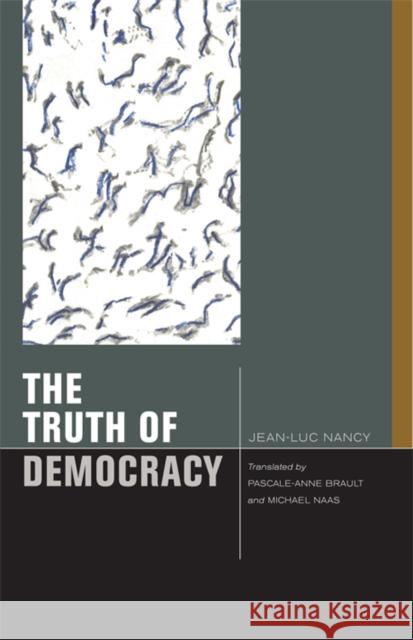The Truth of Democracy » książka
The Truth of Democracy
ISBN-13: 9780823232444 / Angielski / Twarda / 2010 / 72 str.
The Truth of Democracy
ISBN-13: 9780823232444 / Angielski / Twarda / 2010 / 72 str.
(netto: 297,31 VAT: 5%)
Najniższa cena z 30 dni: 310,91
ok. 22 dni roboczych.
Darmowa dostawa!
The initial provocation for The Truth of Democracy was the fortieth anniversary of May '68 and the recent criticism (some by French President Nicolas Sarkozy himself) leveled against the ideals and actors at the center of this important but still misunderstood moment in French history. Nancy here defends what he calls simply 68without apology or equivocation, calling it an essential stage in the search for the truth of democracy.Less a period within time than a critical moment or interruption of time, 68 needs to be understood, Nancy argues, as an eventthat provided a glimpse into the very spirit of democracy, a spirit that is linked not to some common vision, idea, or desire (such as the nation, the republic, the people, or humanity) but to an incommensurability (the infinity of man or man's exceeding of himself ) at the origin of democracy.Written in a direct and accessible, almost manifesto-like style, The Truth of Democracy presents a forceful plea that we rethink democracy not as one political regime or form among others but as that which opens up the very experience of being in common.By rearticulating many of the themes and terms he has developed elsewhere (from community and being in common to the singular plural) in relationship to an original analysis of what was and still is at stake in May '68, The Truth of Democracy is at once an eloquent summary of much of Nancy's work and a significant development of it.It is as if, forty years after being first scrawled across university walls and storefronts in France, one of the most famous slogans of May '68 has received in The Truth of Democracy its most eloquent and poignant theoretical elaboration: Be realistic, demand the impossible











